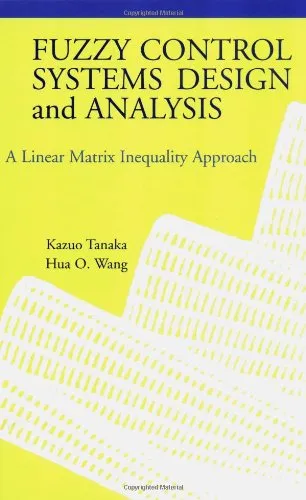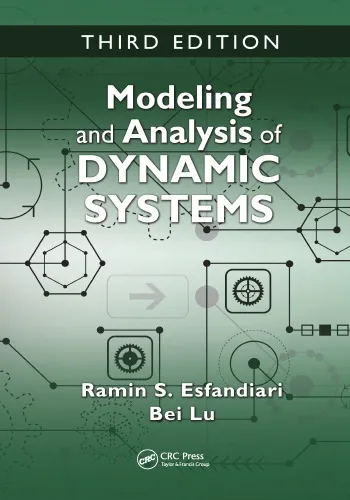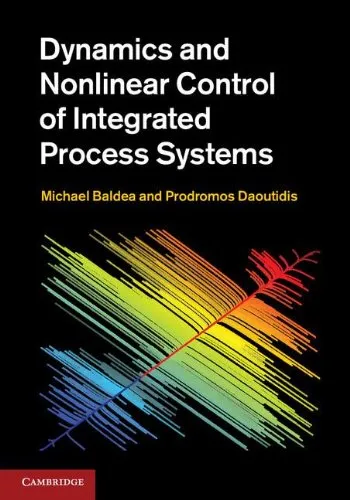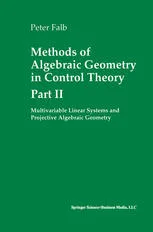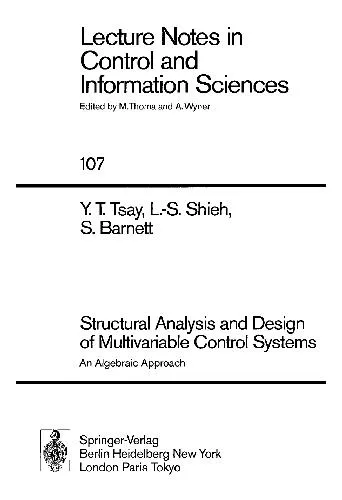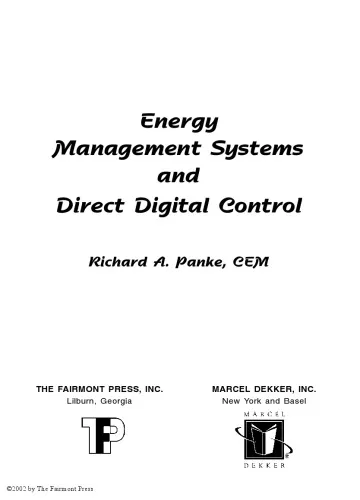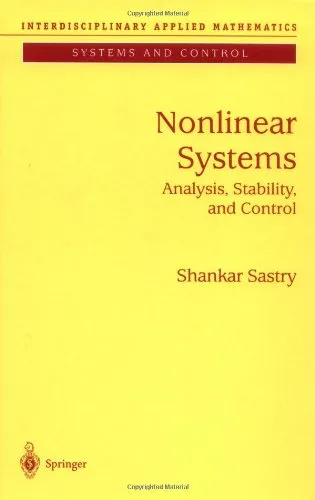Fuzzy control systems design and analysis. A linear matrix inequality approach
4.5
Reviews from our users

You Can Ask your questions from this book's AI after Login
Each download or ask from book AI costs 2 points. To earn more free points, please visit the Points Guide Page and complete some valuable actions.Related Refrences:
Welcome to an insightful journey through the innovative world of fuzzy control systems. The book "Fuzzy Control Systems Design and Analysis: A Linear Matrix Inequality Approach" by Kazuo Tanaka and Hua O. Wang provides a comprehensive exploration of fuzzy control methodologies, offering readers a robust framework for understanding and implementing advanced control strategies.
Detailed Summary of the Book
The realm of fuzzy control systems is an intricate field that blends the nuances of classical control theory with the flexibility of fuzzy logic. This book serves as a seminal piece of literature, bridging the gap between mathematical theory and practical application. It begins by introducing fundamental concepts of fuzzy logic and control, setting the stage for more complex topics. Gradually, it delves into the core subject matter: the use of Linear Matrix Inequalities (LMIs) as a powerful tool for designing and analyzing fuzzy control systems.
Tanaka and Wang systematically build upon the groundwork by exploring various aspects of stability, performance, and controller design through the lens of LMIs. The book's structured approach ensures that readers can comprehend the theoretical underpinnings while also acquiring tools that are directly applicable to real-world problems. Each chapter is fortified with illustrative examples and case studies, showcasing the application of concepts in various engineering and computational domains.
Additionally, the authors emphasize the scalability and adaptability of LMI-based fuzzy control techniques, making a solid case for their relevance in systems that require robustness and adaptability. The text is rich with empirical analysis, providing a comprehensive understanding of how these methodologies can optimize system performance amidst uncertainty and changes.
Key Takeaways
- Fuzzy logic extends traditional control theory by incorporating human-like reasoning in decision-making processes.
- Linear Matrix Inequalities offer a versatile framework for addressing stability and performance challenges in control systems.
- The book presents numerous real-world applications, demonstrating the practicality of LMI-based approaches.
- The systematic approach makes advanced concepts accessible to both students and professionals in the fields of engineering and computer science.
Famous Quotes from the Book
"Fuzzy control systems, when designed with precision and alignment, enable machines to think and adapt like humans in complex environments."
"The integration of LMIs in control design is not merely a mathematical endeavor but a gateway to unlocking unparalleled system performance and reliability."
Why This Book Matters
In an era where systems are becoming increasingly autonomous and interconnected, the demand for sophisticated control mechanisms has never been higher. "Fuzzy Control Systems Design and Analysis: A Linear Matrix Inequality Approach" is pivotal for practitioners and researchers aiming to pioneer innovations in control system technology. Its significance lies in its ability to translate complex theoretical constructs into applicable, understandable strategies.
Furthermore, the book acts as a bridge, connecting current academic research with practical engineering solutions. By demonstrating how LMI-based fuzzy control can be implemented across various industries, Tanaka and Wang not only contribute to the academic discourse but also provide actionable insights for the development of future technologies. As global industries continually evolve, this book remains a critical resource for understanding and designing advanced control systems capable of meeting modern challenges.
Free Direct Download
You Can Download this book after Login
Accessing books through legal platforms and public libraries not only supports the rights of authors and publishers but also contributes to the sustainability of reading culture. Before downloading, please take a moment to consider these options.
Find this book on other platforms:
WorldCat helps you find books in libraries worldwide.
See ratings, reviews, and discussions on Goodreads.
Find and buy rare or used books on AbeBooks.
1307
بازدید4.5
امتیاز0
نظر98%
رضایتReviews:
4.5
Based on 0 users review
Questions & Answers
Ask questions about this book or help others by answering
No questions yet. Be the first to ask!
